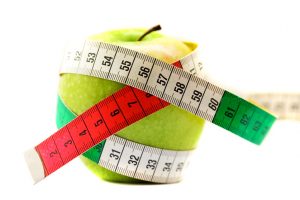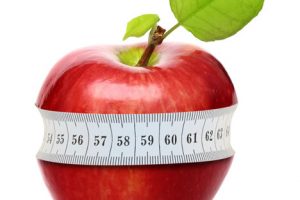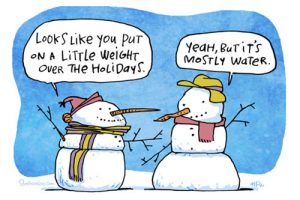When I get questions from readers I often see them explain that there are certain foods which they are their ‘weaknesses’. These foods are never in the category of vegetables and are more likely to be sweets or takeaways. Moreover, giving up those ‘weaknesses’ is what most people find as ‘the hardest thing to do’. Sometimes it is not certain foods the issue. Is food in general, and some people will describe being hungry all the time and can’t stop
Embarking on a weight loss diet most of the time means restricting or minimising sweets, sugars, junk food, takeaways and so on along with restricting calories and often the amount of food consumed. So how do you control the desire for certain foods if it is ‘the hardest thing to do’?
This article will look at what makes us crave or desire certain foods and food in general and will suggest weight loss tips in controlling the desire for food.
Tip1. I will start the article with the first tip which is read this article. This may sound vain; however I will just say knowledge is power. If you know why you are hungry then you will be more able to deal and control your desire for food. How can you follow some tips if you don’t know why or what is going on?
So to move on, what is going on?
Eating yourself happy
In nature’s terms, hunger is one of the ways for the body letting us know that it needs fuel. However, hunger for the modern human is a lot more complicated than the simple ‘run out of fuel’ terms.
One area in which research has looked at is emotional eating. In emotional eating hunger is not just a fuel signal but is influenced by our emotions.
If we say: ‘Those who have got ‘comfort’ foods for the hard times’ to put their hands up; and ‘those who at some point have said lets go out (or cook) for a nice meal to celebrate’ to put their hands up. I think just about everybody would put their hands up. Emotional eating takes place whether we are happy or sad and it can be connected with getting a ‘good feeling’ or in other words eating yourself happy. If we are sad we can comfort eat to feel better, if we are happy we comfort eat to sustain the good feeling.
Emotional v physical hunger
Physical hunger is considered to start slowly and gradually and is often accompanied by physical symptoms such as headache, weakness, sickness, fatigue, stomach growling etc. The more we delay eating the stronger/or worst hunger and its symptom will become. When physically hungry we do not carve for a specific food but anything will do.
Emotional hunger is considered to start suddenly and people do crave a specific food. In simple words nothing else will do but only that food to satisfy the craving.
The results
The after effect of emotional eating usually has the opposite result from getting a good feeling. Studies do suggest that people don’t actually feel better after comfort eating. They can feel content while eating that specific food but feel bad or guilty afterwards.
This tends to create a cycle in which people emotionally eat to feel better, they feel bad or guilty afterwards so they eat more or eat comfort foods to feel better, they may put on weight and may feel low or unhappy so they comfort eat…..and so on.
Tip 2. Break the cycle of emotional eating.
First recognise if it is emotional hunger or not. Ask yourself: ‘Do I crave a specific food?’ ‘Do I have any other physical symptoms such as stomach growling, fatigue, feeling like I will faint etc?’ ‘If I have a glass of water will it stop my hunger?’
Second keep a food and drinks diary for a week. Include how you feel before eating the food and after. This will help recognise which foods you are most likely to have or crave in combination to which feelings you have and then see how you feel after. Better, worst, unhappy and so on.
Third once you know which feelings are connected with which foods you can start by replacing these associations. For example you crave chocolate when you feel depressed, instead of having chocolate find a different food like fruit or a different pleasurable activity like have a nice bath for when you crave chocolate and feel sad.
Make a list of activities you enjoy and place it on the fridge and have it in your bag. When you get ‘emotional’ cravings look at your list.
Fourth if you can’t beat the craving have a small portion of the food you want. For example, have little bags of small portions of chocolate and have only one small portion.
Fifth if you have an ‘emotional’ craving do something else for 5-10min. Clean the house, go for a walk, phone a friend. Is the craving still there after 5-10min? If you take your mind off a specific thing you may forget about it.
Sugar-insulin hunger
In simple terms carbohydrates are sugars. When eating foods high in carbohydrate content the insulin (hormone which helps absorb sugar from the blood) blood levels rise sharply. Once blood sugar levels have fallen then insulin falls sharply as well. The result is to feel hungry and usually crave carbohydrate based foods. Often enough people who are on high carbohydrate diets will describe as ‘if I don’t eat I will drop’ and can feel irritable. So what happens? They usually eat more carbohydrates.
A lot of the weight loss diets suggest a higher protein – lower carbohydrate intake. If the body is used to a high carbohydrate diet when changing to a higher protein intake and decreasing carbs, the body is not used to it and it will crave for carbs. Although some changes will take place from the 1st day of changing a diet, it takes approximately 2 weeks for the body to fully adapt. Those 2 weeks can be the hardest to stick with as you can feel tired, crave sugar, and feel irritable.
Tip 3. Be prepared and persevere. Easier said than done, but if you know what to expect you can be more prepared about it and if more prepared then you are more likely to deal better with it.
Tip 4. Eat a protein based breakfast. It will make you feel full for longer and it will help break the sugar – insulin cycle. Cereal is a very common breakfast and high in sugars. If you have a bowl of carbs (simple most of the time) you are setting yourself in for the sugar crave from the beginning of the day.
Tip 5. Opt for complex carbs instead of simple carbs. Studies suggest that foods which have a low Glycemic Load (GL) tend to slow the insulin release in the blood. Eating foods with low glycemic load (GL= Glycemic Index x g total carbohydrate) could promote satiety and thus result in a reduction in energy consumption and weight loss.
Tip 6. Add some vinegar in your food. Some studies indicate that vinegar ingested with food, can promote satiety (make you feel full) and also decrease the glucose response (amount of insulin in the blood in response to eating the food). However, do not start drinking vinegar as if it was water as it can have health complications if over-consumed.
Learned to be hungry
Well we can actually learn to eat more or eat the wrong kind of foods. Maybe that doesn’t come to some people as a surprise; however, these learned behaviours can start as early as birth (if not even pre-birth). For example, research suggests that infants who are being over-fed from birth tend to eat more and have difficulty in controlling their appetite when they grow older.
So maybe you do crave food more because your body has simple learned to eat more. Does that mean that you are doomed? No; the ‘I blame my mother’ is just the easy way out. It is very hard to break habits and/or behaviours which are adopted since birth. However, the body can be conditioned and re-learn behaviours.
Tip 7. As with emotional eating it is about breaking a cycle. Re-associate food with other activities or with healthier foods. If you are trying to follow a weight loss diet and still feel very hungry then try having fruit or vegetables such as carrot sticks. Tips here are in similar fashion with all of the above. Higher protein can make you feel full for longer and it tends to have less calories per gram than high in carbohydrates foods (pasta, bread, pastries etc) and junk foods.
Tip 8. Always consult a medical professional before making any changes to your diet especially if there are pre-existing health complaints or if you have any concerns.
Sometimes uncontrollable hunger or food cravings could be due to hormonal imbalances, diseases, and/or could be a sign of a more serious health issue. It is always best to speak to a medical professional first.





